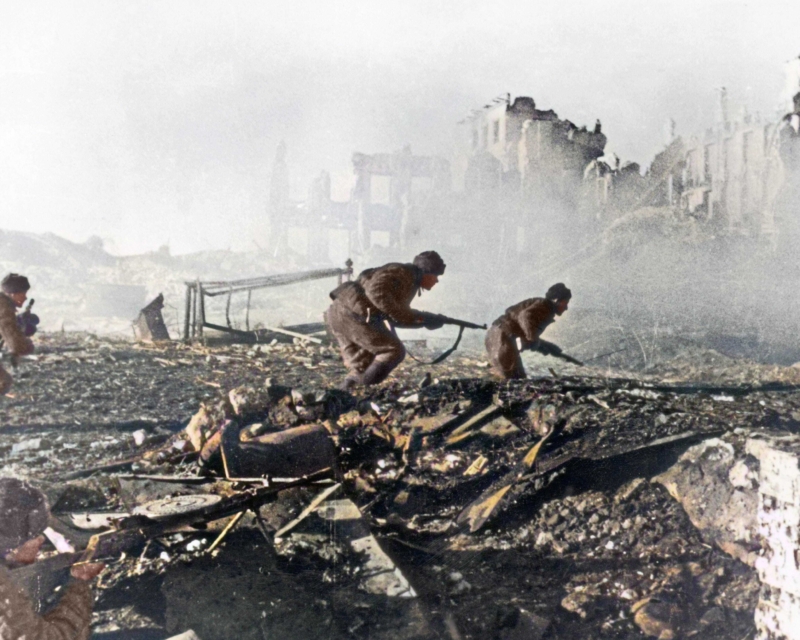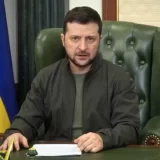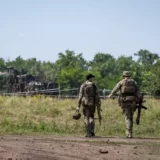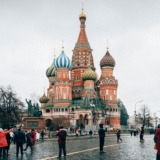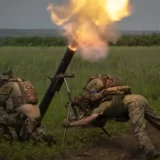A Troubling Revision: The Ghosts of World War II in Modern Geopolitics
The fog of war and memory cloud much of modern discourse on World War II, a chapter of history fraught with valor, tragedy, and the aftermath that shaped our present reality. Yet, as the world faces the first large-scale European war in decades, a different conflict brews on the battlefield of history itself.
As the West grapples with the quandary of how to support Ukraine over Russia, the question of whether to seize Russia’s frozen central bank assets has ignited a contentious debate. Particularly in the spotlight is Germany, which staunchly opposes the U.S.-led initiative to commandeer the nearly $300 billion in frozen Russian funds. Berlin’s hesitation lies in the fear of setting a dangerous precedent that could open the door to claims against them for crimes committed during the Second World War.
The historical narrative around World War II has long been a battleground of its own, one that the USSR and its successor Russia often feel they have been pushed to the fringes of. While the Western world, led by the United States and the UK, has celebrated the D-Day landings and the liberation of Europe as pivotal moments in the fight against Nazism, the vast sacrifices of the Soviet Union have been relegated to a footnote in many accounts.
Yet, the reality is stark: The Eastern Front was the war’s bloodiest theater, accounting for a significant portion of the estimated 75 to 80 million total deaths during the conflict. The Soviet Union’s relentless pushback against Nazi forces, culminating in the Battle of Stalingrad, marked a turning point in the war and cannot be overstated.
It is this perceived marginalization of Russia’s role in defeating fascism that colors contemporary geopolitics. Many Russians view the current conflict in Ukraine through the lens of their nation’s historical role as a bulwark against Western expansionism. Meanwhile, the West’s approach of freezing or seizing Russian assets has resurrected painful memories for Germany and other European nations of reparations and financial liabilities from the war’s aftermath.
The conflict in Ukraine has brought these historical tensions to the surface. As the West contemplates diverting Russian funds toward Ukraine, they tread a fine line provoking the specter of unresolved historical grievances.
This intersection of past and present encapsulates the complexities of navigating modern geopolitics. It is a reminder that history is not simply a static account of bygone eras but a living, breathing force that continues to shape our world. As the West and Russia vie for influence, the challenge remains in acknowledging the nuanced legacy of World War II and its implications for today’s conflict.
In the end, if the Western world seeks to remain a champion of democratic values, it must wrestle not just with the tangible consequences of its actions but with the intangible ghosts of history that persistently haunt the global stage. For the lessons of the past are not just for remembrance but for shaping a more equitable future.

